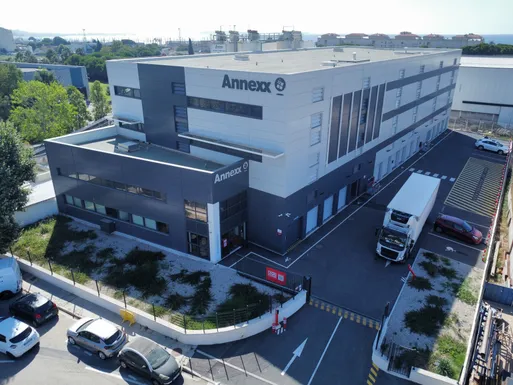When people think of France, they often imagine the Eiffel Tower, croissants and couture, not corrugated steel doors or digital lock codes. But behind the romance and tradition lies a rapidly transforming industry: self-storage. Once considered a fringe solution for life transitions, self-storage is now a magnet for institutional investors, a testbed for innovation and a case study in sustainable growth. As of 2025, France isn’t just participating in Europe’s self-storage boom; it’s leading it.
A New Frontier
With more than 1,200 self-storage centers and 15.8% of the total European market share, France has become Europe’s second-largest self-storage market after the United Kingdom. Urbanization, surging real estate prices and changing lifestyles are compressing personal and business spaces alike, driving a robust demand for storage solutions.
Add to that the growing dominance of e-commerce, the rise of remote work and a cultural shift toward mobility and minimalism, and the result is a perfect storm for self-storage expansion. According to Grand View Research, which publishes more than 240 reports annually on 45 industries, the French self-storage market is set to grow at a 5.9% compound annual growth rate through 2030—one of the fastest in the continent.
As housing sizes shrink in French cities like Bordeaux, Lyon, Marseille and Paris, self-storage provides much-needed breathing room. Whether it’s a startup looking to store inventory or a family downsizing their apartment, demand is spiking across sectors. And this isn’t merely a domestic phenomenon. Investors across Europe and the U.S. are eyeing France’s underpenetrated yet high-potential market. Institutional players are moving in, startups are scaling fast and legacy operators are reinventing themselves.

Annexx in Cannes, France.Paris: The Beating Heart
If France is the rising star of Europe’s self-storage industry, Paris is its gravitational center. The City of Light, already known for its dense urban fabric, shifting demographics and real estate scarcity, is now witnessing an unprecedented boom in self-storage development. As investors race to meet the demand for space, Paris has become a laboratory for innovation, density-conscious design and long-term strategic planning.
In the last year, the square footage supply of self-storage space in the Paris Metropolitan Area has grown more than 15%—a remarkable figure for such a mature and spatially constrained market. The number of announced facility openings suggests that this strong growth will continue. This surge isn’t just a statistical anomaly; it reflects deeper structural trends driving urban self-storage demand in the French capital.
With more than 2.1 million residents in Paris proper and 12 million-plus in the Île-de-France region, the pressure on housing is immense. The average apartment is 320 to 430 square feet, a number that has declined over time due to rising costs and limited new housing development. For Parisians, self-storage has become an extension of the home, a “second cellar” that compensates for shoebox-sized flats.
Deal Frenzy
In the last 12 months, France has seen a flurry of large-scale transactions, establishing its self-storage sector as a serious investment class. Consider the following:
The Carlyle Group acquires Locabox. In one of 2024’s marquee deals, global investment giant Carlyle acquired 20 Locabox self-storage facilities across France. The acquisition—one of the largest in French self-storage history—demonstrates a growing appetite for consolidated portfolios. Five sites remain independently branded, allowing for brand flexibility while optimizing scale.
Ardian doubles down with Atout-Box. A heavyweight in French private equity, Ardian acquired Atout-Box, which operates seven sites in the Occitanie region. But this isn’t just about storage units, it’s about blending uses. Atout-Box combines self-storage with coworking spaces and micro-logistics hubs, showing how storage can become a flexible urban utility. This acquisition followed Ardian’s earlier purchase of Costockage, a peer-to-peer storage platform.
Lockall makes a €155 million power play. Perhaps the boldest play came from Lockall, which raised €155 million from a Starwood Capital subsidiary to fuel a major Parisian expansion. The company has a goal of 15 urban locations by 2026.
What’s Next?
Momentum in the French self-storage sector shows no signs of slowing. Driven by sustained demand, institutional capital and technological innovation, the industry is entering a new phase of maturation. Several key trends are expected to shape the market through 2030:
Continued consolidation. We can expect a wave of consolidation as investors and private-equity firms seek to aggregate smaller and mid-sized operators into scalable platforms. Many of these local or family-run businesses, typically operating one to five facilities, are becoming acquisition targets for groups looking to expand quickly and achieve operational synergies. Simultaneously, established players such as Annexx (my company), Lockall and Shurgard will continue acquiring independent operators to reinforce their footprint in key regions and benefit from economies of scale.
Rise of unattended facilities. Automation and remote-management tools will enable the deployment of smaller, unattended facilities, especially in dense urban centers where staffing costs and real estate prices are high. These compact, tech-enabled properties can be operated with minimal onsite presence, relying on digital access control, surveillance systems and remote customer service. As a result, operators will be able to tap into underserved micro-markets and make efficient use of underutilized urban spaces such as basements, parking garages or renovated retail fronts.
Artificial intelligence (AI) as a backbone of operational efficiency. AI will become increasingly central to self-storage operations. From dynamic-pricing algorithms to customer-service chatbots, the technology will enhance service delivery while reducing overhead. Moreover, predictive analytics will allow operators to anticipate demand trends, guide investment decisions, and improve unit mix and location strategies.
At Annexx, we’re leveraging AI to adjust rental rates in real time based on demand, competition and occupancy. We use AI-powered assistants to handle bookings and customer questions 24/7. Our facilities also encompass AI security that detects suspicious behavior.
A smarter, more customer-centric experience. AI and automation will also elevate the customer experience. With tools that recommend ideal unit sizes, enable contactless move-ins, and provide personalized services, the self-storage journey will become more seamless and intuitive. Expect more operators to invest in mobile apps, voice assistants and integrated platforms that combine billing, support and access management in one place.
Cross-sector blending. Expect to see more hybrid facilities combining self-storage with coworking spaces, parcel lockers and even retail, creating multi-functional urban hubs. This model not only maximizes space utilization, it aligns with evolving consumer habits and the demand for flexible, mixed-use environments.
Sustainability. At Annexx, we’ve prioritized environmental responsibility. Not only do we specialize in brownfield redevelopment, turning abandoned industrial sites into smart storage hubs, we build vertical to reduce our land footprint. As a standard, our properties incorporate green features including rooftop solar panels, LED lighting and energy-efficient HVAC systems. I fully expect to see other self-storage operators in France embrace these initiatives.
The Market to Watch
The French self-storage boom is part of a broader continental surge. In 2024, Europe recorded €875 million in industry transactions, nearly tripling the volume of 2023. Analysts expect total 2025 figures to surpass €1 billion, a milestone that seemed unthinkable five years ago.
Self-storage has come a long way, moving well past its utilitarian origins. Today, it’s a vibrant, forward-looking sector where innovation, sustainability and profitability intersect. Whether you’re an investor looking to enter a high-growth European market, a tech firm exploring industry applications or an operator seeking international inspiration, France is the market to watch.
Philippe Peyrot is president of Annexx, which operates 27 self-storage facilities in France, with two more under development. The company was founded in 2002 in Toulouse, France, by three entrepreneurs with extensive experience in construction, management and real estate. To reach Philippe, email [email protected].
